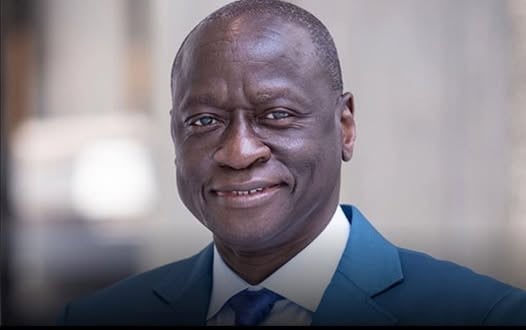Reclaiming identity after a career disruption (opinion)
Disruptive events, the kind that unexpectedly interrupt our lives and make it difficult to plan for the future, happen to almost everyone. Denied promotions, caregiving responsibilities, medical diagnoses and emotional traumas are just a few of the experiences that can leave us feeling uncertain about who we are and how our careers may need to change. Those of us in higher education face an additional set of vulnerabilities, including leadership turnover, health crises and even pandemics, political changes and international turmoil. When disruptive events interrupt our career trajectory, the sense of identity we’ve built can suddenly feel uncertain or even lost altogether.
I’ve always been a planner, thinking not only about what I want to accomplish this week, this month, this year, but even further into the future. When I started preparing for an academic career in 1999, long-term planning became even easier—five years of graduate school, a six-year tenure clock, six more until promotion to full professor. I also had goals to step into leadership roles: an associate editor position, Ph.D. program coordinator, maybe even department chair one day.
For the most part, my academic career proceeded as planned. Of course, I had to deal with small diversions, including multiple journal rejections in a row, minor surgeries and time off to care for family members. A couple of years before each milestone, I was convinced that I wouldn’t reach it. But each time, I did. By 2020, I was embarking on my second term as chair of the Department of Management and Entrepreneurship at the University of Iowa.
Most Popular
Although I worked more hours than I had at any point in my career and parts of the department chair role were frustrating, I found the position deeply meaningful. I led and mentored smart, dedicated junior faculty members and removed obstacles to help them do their best work. I participated in strategic planning, thinking about ways to better serve our students. I was reminded every day of the good work that was happening in the department, the college and the university. I started, once again, planning for where I would be in five years, thinking particularly about future academic leadership roles. Perhaps I would apply for a position in the provost’s office where I could focus on faculty development. I began to seriously explore my options.
But in November 2020, I was diagnosed with Parkinson’s disease. My symptoms were relatively mild, but the demands of leading exceeded my capabilities. I needed to step out of the department chair role and off the administrative track. My symptoms fluctuated from day to day, making even short-term planning difficult. Indeed, my disruptive event not only made it difficult to answer the question of what I will be doing in five years, but it also led to questions about my identity: Who am I now?
I do research on identity, exploring questions about how we create and manage our professional identities, so I turned to that research to develop strategies for maintaining a positive identity despite my Parkinson’s diagnosis. I gained four insights that I’d like to share with others undergoing their own major disruptions.
It is important to take time to recognize the grief that comes with identity loss, but finding new ways to define ourselves, new ways to make an impact, is an important part of the process of navigating disruptive events. Shortly after my diagnosis, I stepped into the role of faculty director of the Tippie College of Business Social Impact Community, a role that gives me the flexibility I need yet also allows me to contribute in ways that I find meaningful.
For example, when I stepped down from the department chair position, the thread of my identity story that focused on moving up the administrative ladder was broken. However, the opportunity to mentor junior faculty, a part of the administrative role that I loved, remained. These days, performance reviews are no longer a part of my formal role, but I’ve found several people open to informally continuing developmental conversations. The narrative thread of mentoring has provided a bridge across my disruptive diagnosis.
At first, I simply ignored the future and didn’t even consider who my next possible self might be. Taking things one day at a time helped me cope in the early days of uncertainty. But eventually, I realized that I missed thinking about possible future selves, that I needed to find a new narrative direction.
So I tried scenario planning, a technique that is used for strategic planning in times of uncertainty. It involves the creation of multiple futures based on different assumptions. I now have multiple answers to the question of where I will be in five years. I am operating in the best-case scenario until the assumptions associated with that scenario no longer hold.
After I was diagnosed with Parkinson’s disease, a friend introduced me to a professor in another college who had received the same diagnosis several years earlier. He graciously connected me with two additional retired professors who have Parkinson’s, and the four of us got together over pastries regularly.
Their paths weren’t the same as mine. Like most people with Parkinson’s disease, they were older men. But they shined a light into the dark corners of my future, helping me begin to create new possible futures.
Recently, I started writing about disruptive events and how they change our identities on my Substack, “Who Am I Now?” I hope it and the four strategies I’ve outlined here help other people in academia and elsewhere revise their stories and create fruitful new paths into the future.











